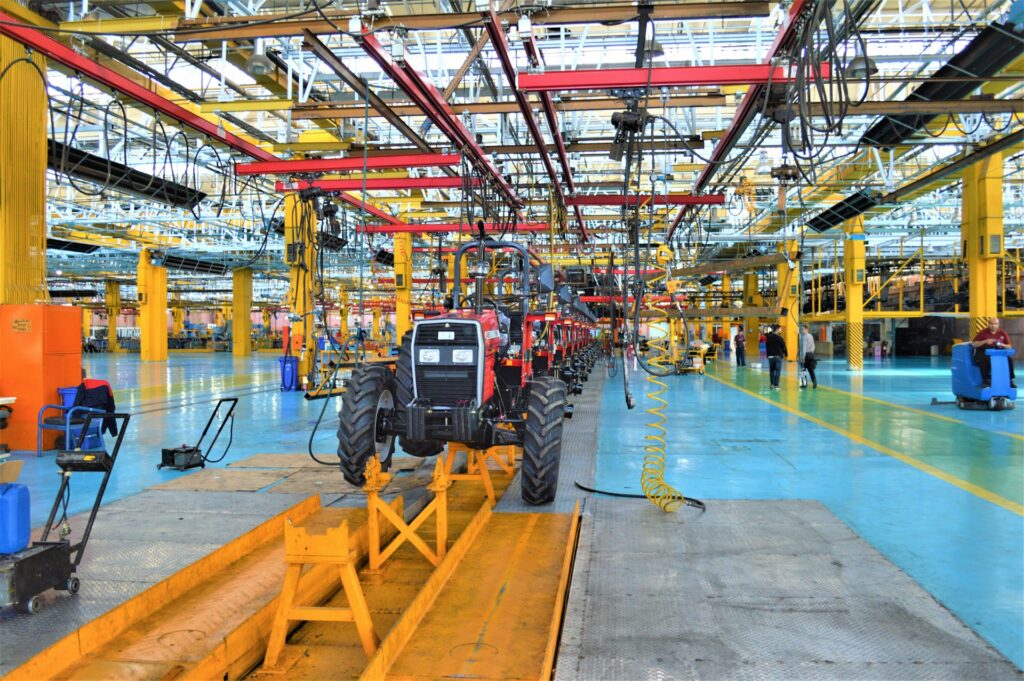The Future of Industrial Manufacturing: Innovations Shaping the Industry
Industrial manufacturing is undergoing a radical transformation driven by emerging technologies, sustainability efforts, and increasing demand for efficiency. From smart factories to AI-driven automation, the sector is rapidly evolving to meet the demands of a digital and interconnected world. Here’s a look at the next wave of advancements set to redefine industrial manufacturing.
1. Smart Factories & Industry 4.0
The integration of digital technologies into manufacturing processes, known as Industry 4.0, is revolutionizing the way factories operate. Smart factories utilize IoT-enabled devices, cloud computing, and real-time data analytics to enhance production efficiency, reduce downtime, and improve overall quality. Predictive maintenance, enabled by AI-driven analytics, ensures machinery operates at peak performance, minimizing unexpected failures and costly repairs.
2. Artificial Intelligence & Robotics
AI and robotics are at the forefront of modern industrial manufacturing. AI-driven systems optimize supply chain management, automate repetitive tasks, and enhance decision-making processes. Meanwhile, collaborative robots (cobots) are working alongside human employees to improve precision, reduce workplace hazards, and boost productivity. As AI continues to advance, we can expect more autonomous manufacturing processes and self-optimizing production lines.
3. Additive Manufacturing & 3D Printing
3D printing has evolved from prototyping to full-scale production, offering cost-effective solutions for complex components and customized products. Additive manufacturing reduces material waste, shortens lead times, and allows for on-demand production, eliminating the need for excessive inventory. Industries such as aerospace, automotive, and healthcare are leveraging this technology to innovate product design and manufacturing processes.
4. Sustainable & Green Manufacturing
Environmental concerns are pushing manufacturers to adopt greener practices. Energy-efficient production systems, carbon-neutral facilities, and the use of sustainable materials are becoming standard. Circular manufacturing models, where waste is minimized and recycled into new production cycles, are gaining traction. Companies are also investing in renewable energy sources to power their operations, reducing their carbon footprint while enhancing operational resilience.
5. Advanced Materials & Nanotechnology
Material science is playing a critical role in the next phase of industrial manufacturing. The development of stronger, lighter, and more durable materials is revolutionizing industries such as aerospace, automotive, and electronics. Nanotechnology is enabling the creation of high-performance coatings, self-healing materials, and enhanced conductive materials, opening new possibilities for product innovation.
6. Blockchain in Supply Chain Management
Blockchain technology is improving transparency, security, and efficiency in supply chain management. Manufacturers are utilizing blockchain to track raw materials, prevent counterfeiting, and ensure ethical sourcing. With a decentralized and tamper-proof ledger, companies can enhance trust among suppliers and customers while reducing operational risks.
The Road Ahead
As industrial manufacturing continues to evolve, companies that embrace innovation and invest in emerging technologies will remain competitive. The future will be defined by smarter, more sustainable, and highly automated production systems that drive efficiency and profitability.
At Atlas InfraWorks, we are committed to leveraging cutting-edge advancements in industrial manufacturing to deliver superior solutions for our clients. Contact us today to learn more about how we are shaping the future of industrial production.


